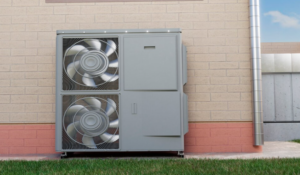To help offset the cost of the carbon tax on individuals and families, the government is providing carbon tax rebates. Putting a price on carbon pollution is one of the most effective approaches to reduce the greenhouse gas emissions that cause climate change. Carbon pricing, commonly known as “the carbon tax,” was introduced by the Government of Ontario in 2019. The carbon tax is applied to fossil fuels like gasoline, diesel, and natural gas.
All the money from the federal price on pollution charged to fuel goes directly back to benefit Canadian families, businesses, farmers and Indigenous groups in the same province or territory where it was collected. To receive their CAI payment, Canadians need to file their annual tax return.
In 2024, Ontario residents will be able to apply for a carbon tax rebate for costs incurred in 2023. The rebates aim to leave most people better off despite the carbon tax. Keep reading to learn more about carbon tax rebate eligibility, amounts, deadlines, and how to apply.
What Is The Carbon Tax?
A carbon tax is a fee charged on fossil fuels based on how much carbon dioxide (CO2) they will emit when burned. The carbon tax aims to reduce greenhouse gas emissions and combat climate change.
The Canadian federal government implemented a federal carbon tax in 2019 in provinces that did not already have a carbon pricing system in place that met federal standards. The carbon tax puts a price on CO2 pollution to encourage individuals and businesses to find ways to reduce their CO2 emissions.
The carbon tax makes high-emission fuels and activities more expensive to reflect the environmental costs of the pollution they generate. This provides a monetary incentive for people and businesses to choose cleaner, low-carbon alternatives and become more energy-efficient.

Over time, the carbon tax rate increases, which enhances the incentive to switch to sustainable technologies and energy sources. The federal carbon tax started at $20 per ton of CO2 emitted in 2019, rising to $50 per ton by 2022.
Revenues generated from the carbon tax are returned to individuals and families through tax rebates designed to offset increased costs. This way, most people end up financially better off despite the carbon tax. The rebates help make carbon pricing more equitable and palatable to the public.
Carbon Tax Rebates
The federal government introduced a carbon tax in Ontario in 2019 as a way to reduce greenhouse gas emissions and combat climate change. Though well-intentioned, the carbon tax has resulted in increased costs for consumers through higher prices on gasoline, natural gas, and other fuels that produce carbon emissions when burned.

To help mitigate some of this increased cost of living, the federal government is providing Ontario residents with carbon tax rebates. These rebates put money directly back into taxpayers’ pockets to reimburse them for some of the extra costs they’ve had to pay as a result of the carbon tax.
The rebates help make the carbon tax more affordable for citizens, while still sending a price signal to encourage people and businesses to find ways to reduce their carbon footprints. The government returns all direct revenue from the federal carbon tax to the province or territory where it was collected.
Who Is Eligible For The Carbon Tax Rebate?
To be eligible for the carbon tax rebate in Ontario, you must meet the following criteria:
– Be a resident of Ontario. Canadian citizens and permanent residents are eligible.
– Have filed a tax return for the rebate year. For the 2024 rebate, you must file a return for the 2023 tax year.
– Be 19 years of age or older. Rebates are paid to adult individuals.
– Have a spouse or common-law partner with income below the threshold amount (see next section for amounts). The rebate is based on combined household income.
– Have a primary residence in Ontario.
– Not be living in a long-term care home. Residents of long-term care homes are not eligible.
– Not be incarcerated in a public institution or prison for a period of 90 days or more in the rebate year. The rebate is paid per household rather than per individual. Only one person per household will receive the rebate payment.
How Much Is The Carbon Tax Rebate?
The amount of the carbon tax rebate depends on where you live in Ontario. The rebate is calculated based on the amount of carbon tax an average household is expected to pay in each region.
For 2023, the estimated average household carbon tax costs and corresponding rebates are:
Rural Households: $448 carbon tax costs, $450 rebate
Small and Medium Communities: $239 carbon tax costs, $240 rebate
Large Urban Centers: $224 carbon tax costs, $225
The rebate amount aims to fully offset the average carbon tax costs for households in each area of the province. Your individual household carbon tax costs may be higher or lower, but the rebate is based on the regional average.
The rebate amounts are updated each year to keep pace with changes in the federal carbon tax rate and estimated household costs. The rebates ensure households don’t pay extra carbon tax costs, protecting affordability while the carbon tax incentivizes emissions reductions.
When Will Rebates Be Issued?
The federal carbon tax rebates for Ontario residents will be issued starting in 2024. The rebates will be sent out quarterly, with the schedule as follows:
Mid 2023 – Rebates issued for the October to December 2022 period
Late 2023 – Rebates issued for the January to March 2023 period
Early 2024 – Rebates issued for the April to June 2023 period
The rebates are paid quarterly so that they align with the quarterly carbon tax collection. This means the rebate payments will reimburse Ontario residents for the carbon tax they paid in the previous 3 months.
How To Apply For The Rebate
Applying for the carbon tax rebate is a straightforward process. There are a few ways eligible individuals can apply:
CRA My Account
The easiest way to apply is through the CRA’s My Account portal. Log in to your CRA My Account, go to Apply for Benefits and Credits, and complete the Climate Action Incentive application. The CRA will confirm your eligibility and issue the rebate.
Paper Application
Print and complete the Climate Action Incentive Application form. Mail the completed form to the address listed. Paper applications take longer to process.
File a Tax Return
Regardless of income you need to file your tax return in order to receive your carbon tax rebate. Submitting a return is the best way to ensure you receive the carbon tax rebate. Make sure to claim the Climate Action Incentive.
Apply through Provincial Program
Some provinces have integrated carbon tax rebate applications into existing low-income support programs. Contact your provincial government for details.
Applying as early as possible, ideally before the end of 2023, ensures prompt delivery of the rebate once issued. Make sure your personal information with the CRA is up to date to avoid delays. Contact the CRA if you need help applying.
Carbon Tax Rebate Payment Methods
The federal carbon tax rebate will be issued through direct deposit or mailed check.
Direct deposit will be the default payment method for those who filed taxes and received refunds or benefits via direct deposit previously. No action is needed for eligible recipients that already have direct deposit set up with the CRA.
For those who did not use direct deposit on their previous tax return, the carbon tax rebate will be issued by check and mailed to the address on file.

Individuals can sign up for direct deposit through their CRA MyAccount online portal. This will ensure any future GST/HST credit amounts, Canada child benefit payments, income tax refunds and carbon tax rebates are deposited directly into your bank account moving forward.
To sign up for direct deposit, you will need to provide your social insurance number, date of birth, current postal code and bank account information.
If you do not have a bank account, rebate checks can be cashed for free at any Canada Post retail outlet. A piece of photo ID may be required.
The CRA aims to issue carbon tax rebates in a timely manner to all eligible recipients. Contact the CRA if you believe you qualify for the rebate but do not receive it.
What To Do If You Don’t Receive The Rebate
If you don’t receive your carbon tax rebate payment by the end of 2023, here are some steps you can take:
– Check your bank account statements and records to confirm the rebate was not deposited. Payments may take some time to process so double-check before taking further action.
– Log in to your CRA MyAccount and check your notice of assessment to confirm you were eligible and the rebate was issued.
– Contact the CRA at 1-800-959-8281 to inquire about the status of your rebate. They can look up your account details and provide information on when and how the rebate was issued.
– Update your address and direct deposit information with the CRA if you’ve moved or changed bank accounts recently. This ensures future payments go to the right place.
– If the CRA confirms your eligibility but there is a problem issuing payment, they can re-send the rebate once the issue is resolved.
– File a formal complaint if there are continued problems obtaining your carbon tax rebate after contacting the CRA. Persist with following up until the situation is corrected.
Conclusion
In summary, the Ontario carbon tax rebate is a payment made by the provincial government to help offset the costs of the federal carbon tax for residents. To be eligible, you must be an Ontario resident and file your taxes. Most people who are eligible will receive the rebate automatically when they file their tax return.
The carbon tax rebate provides financial assistance to households which are impacted by the costs of carbon pricing. While the rebate may not fully offset carbon tax expenses for all families, it does help ease the burden. The rebate is part of the provincial government’s plan to address affordability issues related to climate change policies.
If you have any questions regarding the carbon tax rebate or if you would like more information about additional eco-friendly products that can make you eligible for other energy rebates, contact an expert energy advisor at Provincial Smart Home Services.
Related Posts

A Guide to Heating Rebates and Energy Rebates in Canada
Everything you need to know about energy and heating rebates in Canada as we move towards the end of the year.

Heat Pump Rebate Ontario for 2024
The heat pump rebate Ontario can help you save thousands of dollars in the new year as you continue on your energy saving journey.


No Comments